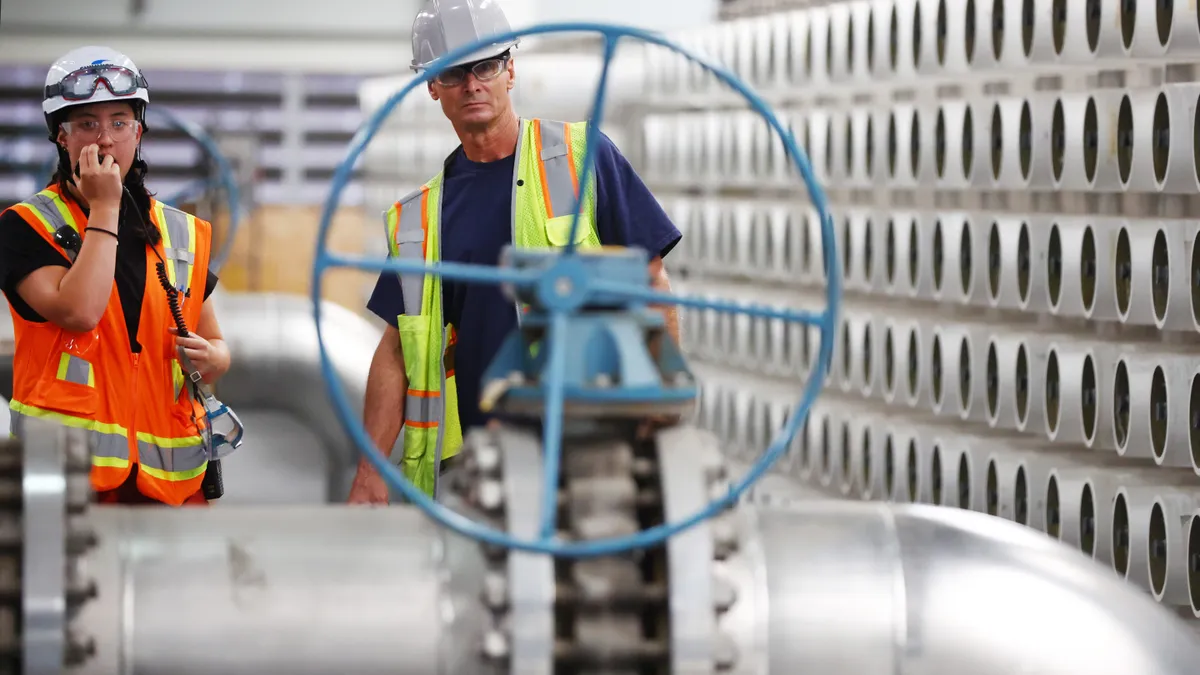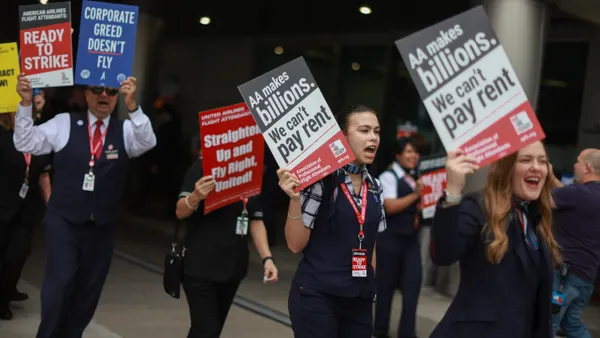Dive Brief:
- Companies seeking to become sustainable face a critical shortage of talent with the skill set necessary to meet their goals, according to Jan. 11 research by the Boston Consulting Group (BCG) and Microsoft.
- Core teams helping companies with their sustainability targets need individuals with a mix of four broad skill sets, BCG said: Sustainability, which may be specific to themes such as climate change, biodiversity or carbon accounting, or to regulations and framework; functional, which reflect business needs (e.g., operations, executive management and procurement) and ground sustainability strategy in business reality; transformational, for change management and to navigate the complex, evolving landscape; and data and digital, which are “critical to guiding the journey, telling the story, devising solutions and measuring progress.”
- Because talent with this broad profile is limited, front-runner companies are selecting employees with at least one of the skill sets and helping them gain the specific expertise needed to put their talents to work, the research found. Companies are doing this by relying heavily on internal talent: 68% of the sustainability leaders surveyed are “homegrown” and hired from within, according to the findings. Almost two-thirds (60%) of employees on sustainability teams say they were not hired for their sustainability expertise.
Dive Insight:
Although unique in its need for highly technical and multidisciplinary skills, sustainability transformation involves familiar concerns: a shortage of talent, the necessity for upskilling, and integrating goals into corporate culture. To address these issues, employers can take advantage of current trends.
Consider the challenge of attracting talent: Younger workers, in particular, say they want jobs with a purpose, research consistently finds. A 2019 study by Olivet Nazarene University found that 90% of millennials said they wanted their work to have a positive impact on the world. More recently, a Deloitte report from early in 2022 noted that climate action is a priority for Gen Z and young millennials. Drawing on these trends, a Pittsburgh recycling firm is soliciting talent with company messaging around purpose and focusing directly on candidates with a passion for sustainability, its vice president of HR previously explained to HR Dive.
Upskilling, needed to close the sustainability skills gap, is also a key draw for talent. Ninety-four percent of workers who responded to a Salesforce survey released in September 2022 said training existing employees on sustainability-related skills would build trust in a company’s ESG commitments; 67% of workers said they wanted more sustainability-related qualifications.
As for integrating sustainability goals into corporate culture, BCG likened the transformation to the early stages of a different essential shift: the digital transformation. “To become digital organizations, [companies] began by building digital fluency in small groups (organized as innovation labs or centers of excellence, for example) and then expanded that capability to embed it across the organization,” the report noted.
Sustainability skills and jobs will take a similar direction, the vice president of a training provider recently told HR Dive. The phrase “every job is a digital job” focused on infusing digital jobs into all jobs, including HR, communications and learning, he said. Employers removed HR from the digital change, but they can’t afford to do so with the sustainability transformation because HR knows how to engage the whole company, the vice president warned.
Instead, this could be a way for companies to learn from their past mistakes, he said.













